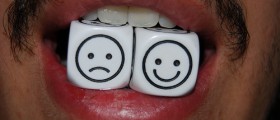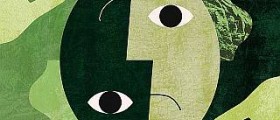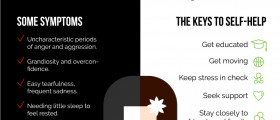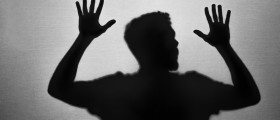
Bipolar disorder is also known under the name manic-depressive disorder. This description describes a specific category of mood disorders defined by one or more episodes of extremely elevated energy levels and mood, with one or more depressive episodes. The opposite episodes are typically mediated by periods of normal mood, in which the person functions normally. However, some people may have more difficulties in normal functioning, since their episodes rapidly alternate, and person is almost constantly in some sort of extreme mood.
Signs and symptoms of bipolar disorder
Mood swings are one of the normal manifestations of human mind. However, these swings may be very severe in some individuals, to such an extent to interfere with normal daily functioning. This is one of the hardest mental disorders to diagnose, since it varies in different individuals. Some of the patients may feel depressed more often, while experiencing occasional manic episodes. The others may experience predominantly manic symptoms with fewer episodes of depression.
Depressive episodeSigns and symptoms of the depressive episode includes intense and persistent feelings of sadness, guilt, hopelessness and anxiety. Patients may have difficulties sleeping, feel constantly tired, and lose every interest in otherwise pleasant activities. People may loss the interest in sexual activity, feel the need to be alone or even express the symptoms of shyness or social anxiety. In most severe cases, individuals may have morbid suicidal ideas and may attempt suicide. Depressive episodes usually last for at least two weeks or up to six months, if the patient does not receive any kind of treatment.
Manic episode
Manic episodes are generally characterized as episodes of an elevated mood and euphoria. However, the exact manifestations typically vary in different patients. During this stage, most of the patients feel like they are loaded with energy. They will feel almost no need to sleep or, if they eventually fall asleep, they will sleep for just 3 or 4 hours. During the manic episode, people are very talkative, but their thoughts are expressed rapidly. Racing thoughts are sometimes experienced as background or may even take over the person's consciousness. During this stage, many individuals engage in risky behavior such as substance and alcohol abuse, risky sexual behavior, or excessive use of sleeping pills. Generally, patients describe this phase as a feeling of being on top of the world, able to do everything, and unstoppable. In extreme cases, patients experience psychoses, which are a break with reality that severely affects thinking. Some people may experience visual hallucinations or may, for example, become extremely paranoid.

















Your thoughts on this
Loading...